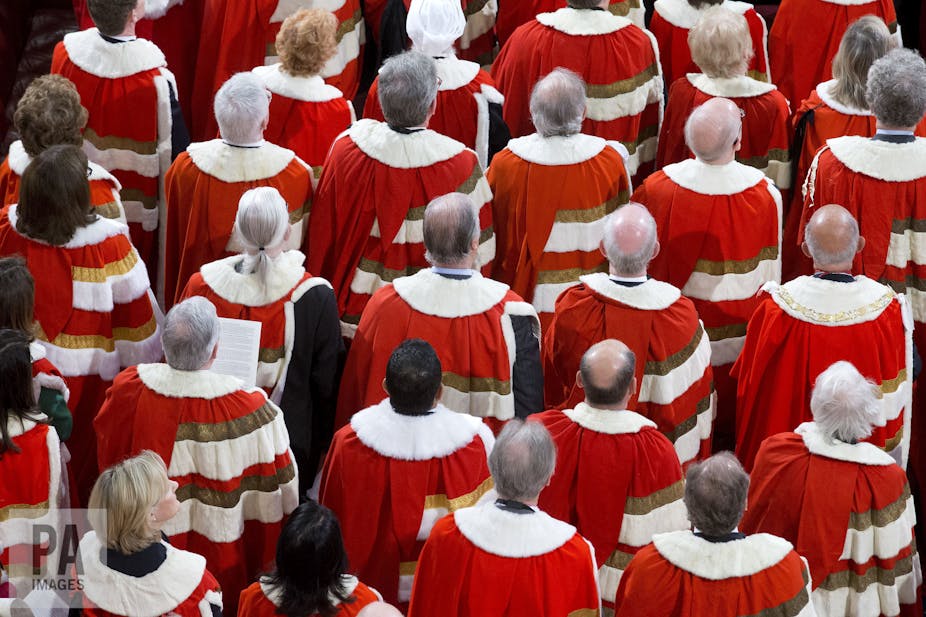After a characteristically thoughtful debate at the end of 2016, the UK House of Lords has appointed a working group to look at ways of reducing its size. Its 809 members make the Lords the second largest parliamentary chamber in the world, just behind the Chinese National People’s Congress. And if things continue in the current vein, the Lords will continue to expand, as each new Prime Minister appoints new peers of his or her political persuasion, in order to bring party composition closer to that of the House of Commons.
Since such appointments are made at a far greater rate than the reduction in size of the Lords (due to death or retirement), the Lords will grow and grow. In recent years, governments have had a lousy record of achieving Lords reform, so the peers themselves might as well give it a go. Here are a few tentative tips on what they might like to keep in mind …
First, be clear about the purpose of the second chamber. It is often tempting to dive into debates about House of Lords reform (for instance, the balance between elected and unelected peers) without thinking about what it ought to be doing. Politics professor Meg Russell has clearly distinguished the various potential functions of a second chamber – representing different interests (regional or religious, for example); being more independent of the executive than the first chamber; acting as a “veto player”, and performing different parliamentary duties such as more detailed scrutiny of legislation. Changes to the composition of the Lords will almost necessarily affect its ability to perform these different functions, and the emphasis placed upon each.
Second, learn from experience what makes second chambers powerful. Political scientist Arend Lijphart has given extensive consideration to what makes second chambers potent. One obvious point is their formal powers (a second chamber which can throw legislation out will be more powerful than one which can just request a rethink). But another aspect is that if a second chamber has a different composition to the first chamber, it will be more powerful, more assertive, than if its make-up is very similar. Any change to the Lords which brings its composition closer to that of the House of Commons might well weaken it significantly.
It’s also important not to overestimate the political appetite for reform. Peers are under no illusions that Lords reform tops any opinion poll on political issues. Every year in my own politics lectures, I ask my students to set out how they think the Lords should be reformed. They have almost always favoured a relatively weak, appointed chamber that does not cause the Commons too much trouble, and really rather like it as it is.
Ironically, they find themselves far stronger defenders of the status quo than the visiting members of the Lords who come to address them. I suspect they are not unusual. The former Italian Premier, Matteo Renzi, recently miscalculated public interest in reforming his second chamber, ultimately bringing his premiership to an end.
Legislation for the nation
Don’t underestimate either the number of banana skins along the road of reform. Recent history has shown that MPs and peers alike are reluctant to agree on change. If it looks difficult, it could cost a great deal of parliamentary time that the government would rather expend on issues of greater public interest.
Also, having a second chamber too big to be effective might give the government an easier ride (and in general governments are much less interested in constitutional reforms to strengthen democratic accountability than oppositions). And it may just suit the government to keep the threat of its own, hostile reforms to the Lords as a “sword of Damocles”, to be brought out as a “punishment”, for instance if the Lords proves awkward over Brexit.

Be prepared to meet in the middle. Given the constraints highlighted, any reform of the Lords will contain inherent tensions. There will be trade-offs, and there will almost certainly be deals to be done. A messy compromise may well be the only thing on offer.
Finally, the Lords should not lose sight of just what a good job they have done in recent times. They have inflicted over 150 defeats upon the government since 2010 (more than ten times the number in the Commons). They have chosen their issues carefully, have tended to do so with public opinion on their side, and have put their points across forcefully, respectfully, and well-rooted in evidence. Britain’s second chamber works rather better than often it gives itself credit for.

